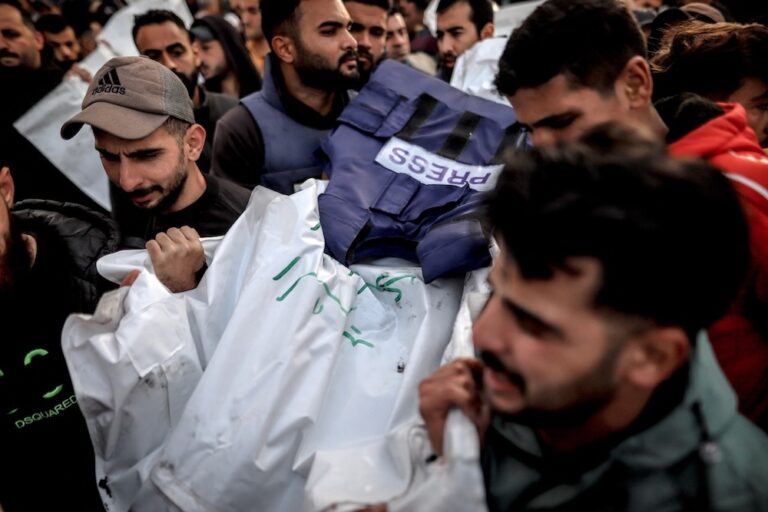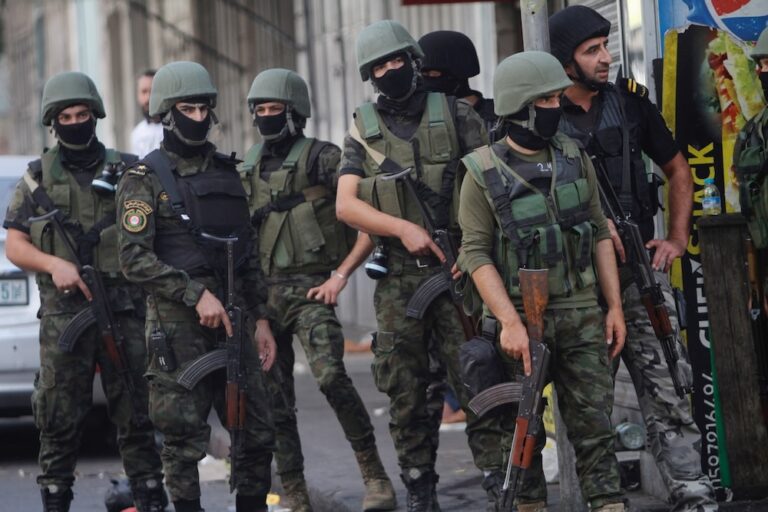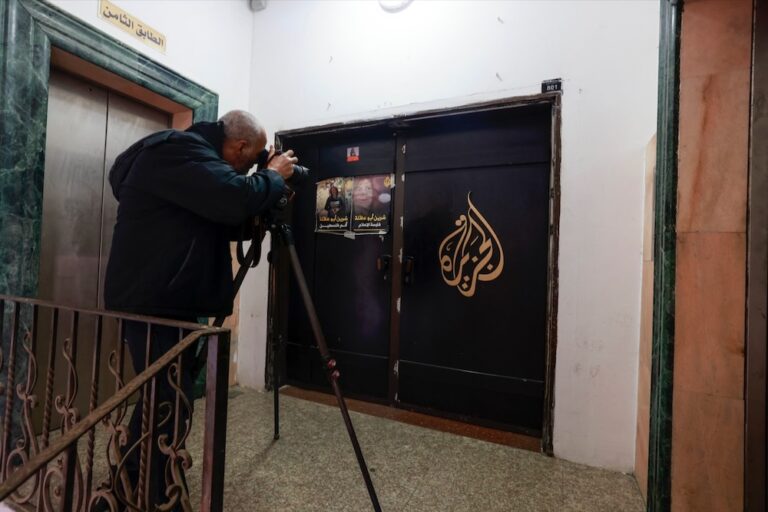In early July, MADA registered several violations of media rights, including detentions, censorship and travel restrictions.
(MADA/IFEX) – 15 July 2010 – The Palestinian Center for Development and Media Freedoms (MADA) expresses its concern about the deteriorating situation of media freedoms in the Gaza Strip. This week MADA registered several violations of journalists’ rights. They include: the detention of the dean of the Media Faculty at Aqsa University, Dr. Ahmad Hamad, and the Greek director Bindles Baba Byblos after filming a wedding in Beit Hanoun; the prevention of Agence France-Presse photographer Mohammed Al-Baba from covering a march for the Hizb Al-Tahrir political party in the Alnasser area of Gaza; and the prevention of the “Alshu’la” newspaper’s editor-in-chief, Saher Alaqra’, and a Sawt Falesteen Radio (Palestinian public radio) correspondent, Tamim Abu Muammar, from travelling to Egypt. In addition, the “Al-Hayat Aljadedeh”, “Al-Ayyam” and “Al-Quds” daily newspapers have been barred entry to the Gaza Strip since 7 July.
Abu Muammar said he went to the Rafah crossing on 9 July to travel to Egypt and that when he handed his passport to the crossing security personnel one of the officials asked him to go to the Internal Security Office in the passenger terminal. Abu Muammar added, “There they told me that I was banned from travelling owing to a recommendation from higher authorities. When I asked them to give me an official document showing the recommendation, they refused.”
Alaqra’ said that on 9 July, he was barred from travelling to Egypt via the Rafah crossing to complete his masters studies in media at the October 6 University. Officials confiscated his passport and his identity card was destroyed. When he asked why he was being prevented from travelling, the answer was “because you belong to the Dayton government and Fateh.”
Hamad said that, on the evening of 11 July, he went to Beit Hanoun accompanied by Byblos and lecturer Mohammad Abu Odeh to film a wedding in order to include it in a documentary film about the life of citizens in Gaza. Hamad said, “After we finished filming we left the wedding, around 11 p.m., but we were surprised to find that the police were waiting for us. They asked us about the videotape the director filmed, and when I asked them ‘why?’, they answered ‘because you have filmed without permission and conducted an interview with the father of the groom.’ After an argument they took us to a police station in Beit Hanoun. They searched our car and watched the tape, after which the detective superintendent said, ‘the tape does not contain anything harmful to the government.’ But another person interfered and said the groom’s father held the government responsible for poverty, unemployment and hunger in Gaza. After having made many phone calls and spending an hour and a half in detention, they released us.”
Al-Baba said he was taking photographs of a march by the Hizb Al-Tahrir political party in the Alnasser area at 5:00 p.m. on 13 July when officers belonging to the criminal investigations police unit attacked him and confiscated some of his belongings, including his camera, laptop and mobile phone. They took him to a police station in the Alshate’ area. After detaining him for an hour they asked him to sign a document saying he would not publish pictures of the march because an order had been issued banning media coverage of the event.
MADA condemns all violations of journalists’ rights and demands that the Gaza authorities reverse their policy of violating freedom of opinion and freedom of expression rights, which are guaranteed by Article 19 of the Palestinian Basic Law and the Universal Declaration of Human Rights. In addition, the organisation calls for journalists to be allowed to travel freely in accordance with the Universal Declaration of Human Rights’ Article 13 on freedom of movement. Finally, MADA once again demands that the distribution of Palestinian newspapers in the Gaza Strip and West Bank be allowed.


